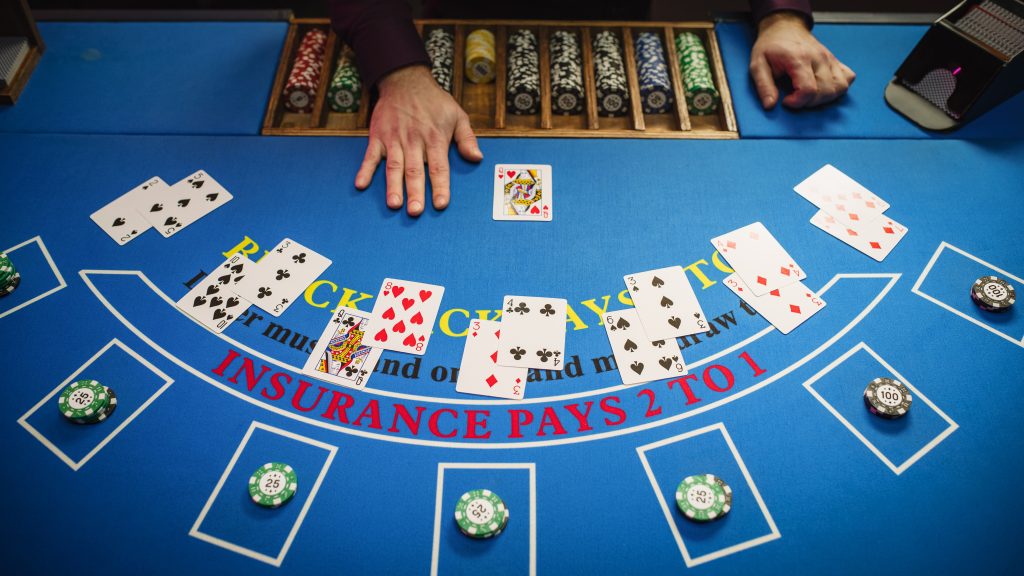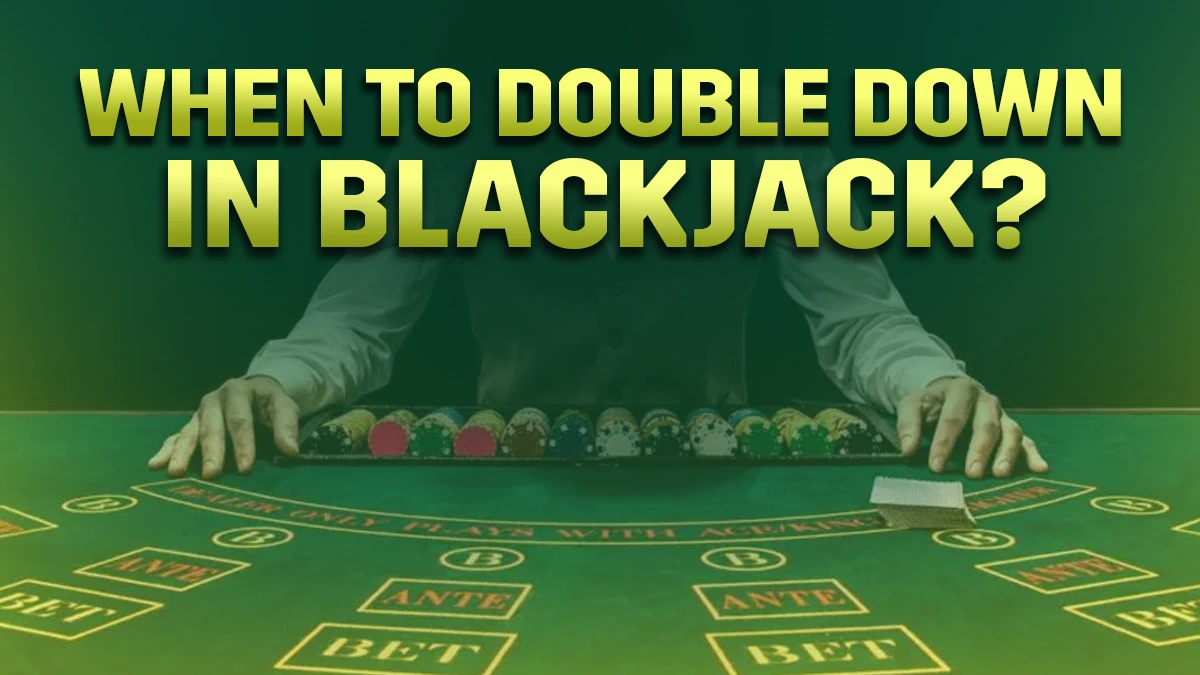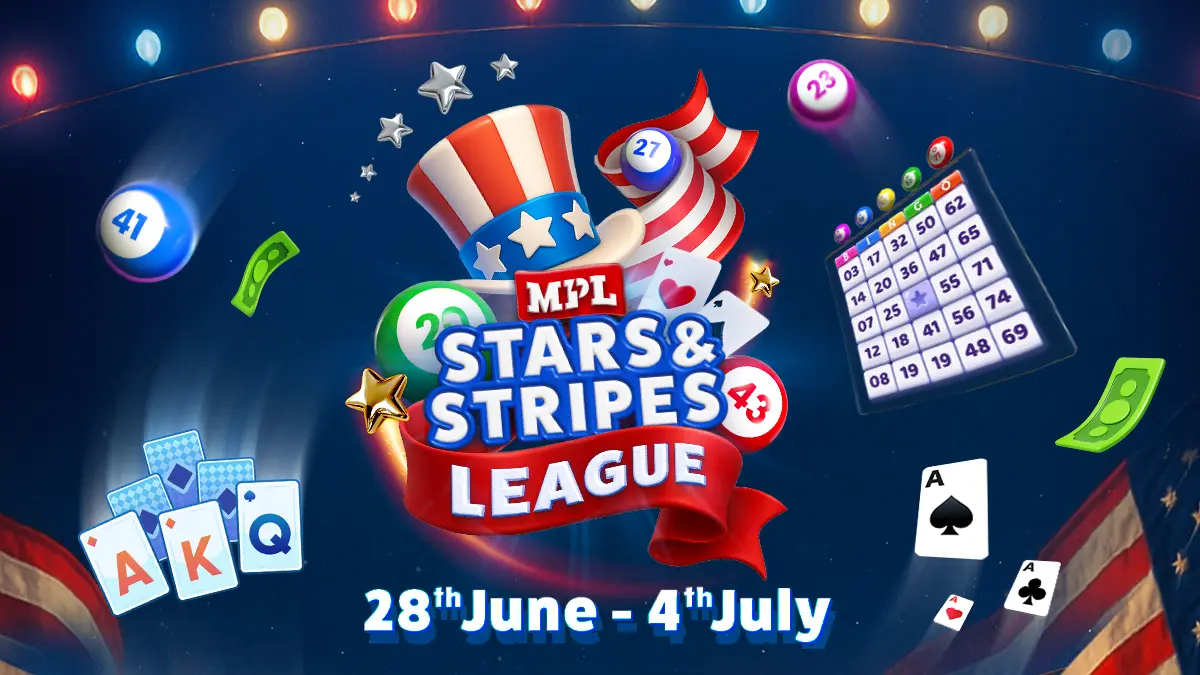Table of Contents
ToggleDoubling down in blackjack game is a thrilling choice that can turn a simple hand into a game-changer. But beyond basic rules, there’s an art to the double-down blackjack move that goes beyond just doubling your bet. Blackjack double down is rooted in probability and strategy, making it one of the game’s most calculated risks. So, when to double down in blackjack?
Learning when to double down—like when holding a strong hand of 10 or 11—can yield impressive results.
Yet, many players overlook key factors, such as the dealer’s card strength, house rules, and the impact of checking for blackjack. By examining these elements, players can make smarter choices and leverage the probabilities in their favor, ultimately leading to a winning hand.
What is Blackjack Double Down
Double down in blackjack provides a dynamic opportunity to gain an advantage in the middle of the game. Doubling down in blackjack means you’re deciding to double down on your original bet, but you only get one more card and must stick with that final hand. Essentially, a player doubles his bet as he feels confident of making a fortune.
This opportunity is available only after the initial two cards are dealt.
After doubling down blackjack, you can win more money if the hand turns out in your favor. It is a risky move. If you are dealt a low card and can’t hit again, you may have to lose twice as much money. So, learning when to double down is a part of learning how to play blackjack game.
The trick is to learn to balance risk and reward, by capitalizing on the golden opportunity to earn more.
Understand the Basics of How to Play Slapjack Card Game
Underlying Terminology
Learning about doubling-down strategies in Blackjack has much to do with understanding the nature of hands.
Hard Hands
In blackjack basic strategy, a hard hand consists of any two cards without an Ace. Adjusting the total without going over 21 is harder with such a combination.
A hard blackjack hand can be combinations like 7 and 8, totaling 15, or pairs like 5 and 5, adding up to 10.
Soft Hands
A soft hand in double-down blackjack includes an ace counted as eleven, allowing flexibility since the ace can switch between one and eleven. It reduces the chance of going bust by exceeding 21.
Here’s a breakdown of soft hands in blackjack:
Ace + Ace: 2 or 12 (soft 12)
Ace + 2: 3 or 13
Ace + 3: 4 or 14
Ace + 4: 5 or 15
Ace + 5: 6 or 16
Ace + 6: 7 or 17
Ace + 7: 8 or 18
Ace + 8: 9 or 19
Ace + 9: 10 or 20
Ace + 10: 21 (a winning hand, so no hit needed)
Blackjack Strategies to Double Down
| When to Double Down | When Not to Double Down |
| On 11 against any dealer card | On hand value of 12 or higher |
| On 10 or hard 9 against dealer’s 3 to 9 | Against dealer’s 7 or higher |
| On soft 16, 17, or 18 against dealer’s 4, 5, or 6 | On soft hands against dealer’s high cards |
| On soft 13, 14, or 15 against dealer’s 4, 5, or 6 | When hand totals 11 and dealer has an ace |
When to Double Down
Consider the following instances if you want to double down when playing blackjack strategy.
With a Hard 11
If you’re cards total to 11, you have a good chance to hit 21. Even if you don’t, it’s very much possible to get a score close to 21, balancing the risk with the right amount of reward. A vast majority play this trick to double down blackjack.
When to double down in blackjack with a Hard 11? It also depends on the dealer’s card. If they show a strong card like an ace, you may have to reconsider doubling down with a Hard 11. It’s preferable only when the dealer has a lower card.
With Soft Hand of 16, 17, or 18
You should do this only when the dealer shows a lower card. A soft 18 is enticing to keep you where you’re in the game, but it’s your chance to risk and double down, thereby improving your hand with one card.
With a Hard 9 or 10
This strategy is also related to when the dealer shows a lower card. If you can get a reasonably high card, doubling down at this stage puts you in a good place against the dealer. You should remember that double blackjack is not a surefire strategy.
This tactic ensures long-term results. Be patient when applying the rule.
When to Avoid Double Down
Check out the below instances where you should avoid double-down blackjack at all costs.
When your Hand Exceeds 11
Avoid the double-down blackjack move if your hand totals over 11, as the chance of busting is too high to risk doubling– you might get a 10 card. Instead, it’s wiser to hit or stand on a lower total and rely on the chance that the dealer might go bust.
The Dealer has an Ace
Yet another straightforward rule is to avoid double-down blackjack when your dealer holds an ace. Because the dealer has almost a sure shot at getting blackjack unless your initial hand holds 11. Even if players find they’re not holding a blackjack, there’s still a good chance their total will come close to 21.
Against Dealer’s 7 or Higher
Avoid doubling when the dealer’s upcard is 7 or higher; they’re more likely to reach a strong hand. For instance, doubling blackjack could be risky if you have 10 and the dealer shows a 9, since the dealer has a good chance of landing close to or hitting 21.
When you’re Uncertain
When to double down in blackjack? You must realize that not all blackjack hands are conducive to taking risks, though you have freedom. If you’re unsure whether to double down in a situation, it’s better to play safe and be where you’re for bet, especially when the situation is not obvious to hit blackjack.
This is how most players lose their money– they double down bet all the time.
When Chasing Losses
One of the important lessons to learn from the blackjack strategy is when to walk away. It’s common for people to try to chase losses from previous rounds, trying to gather lost money. But it only makes you anxious and tense. It’s out of reach for anyone to use a doubling-down strategy when they can’t think stably.
When you’re frustrated with previous losses, it’s time to quit and refresh yourself, unless you’re a casual player. Never use double-down blackjack without control, or you may lose more money than you can afford.
Best Hard Hands to Double Down
Hard 11: Double down if the dealer’s upcard is between 2 and 10.
Hard 10: Double down if the dealer’s upcard is between 2 and 9.
Hard 9: Double down if the dealer’s upcard is between 3 and 6.
Best Software Hands to Double Down
Ace + 2 or Ace + 3: Double down when the dealer’s upcard is 5 or 6.
Ace + 4 or Ace + 5: Double down when the dealer’s upcard is between 4 and 6.
Ace + 6: Double down if the dealer’s upcard is between 3 and 6.
Ace + 7: Double down if the dealer’s upcard is between 2 and 6.
Blackjack Double Down Chart

Source: Kitreel /shutterstock
How to Indicate Double Down in Blackjack
You don’t have to interrupt the whole game to let everyone know you want to use the double-down option in blackjack. You just have to thrust the same value of bet next to your initial bet. Yes, it must be equal to the initial bet amount. A third card will be dealt horizontally, indicating the end of the hand no matter what card comes up.
Otherwise, simply declare your intention to enter double-down blackjack after being dealt cards and gesture to get one more card. There’s nothing much to do.
In online casinos, you can indicate this with a simple press of a button.
Read More: A Quick Guide to the Spades Card Game
What to Look for When Doubling Down
When considering the double-down strategy in blackjack, keep an eye on the casino’s table rules. Because casino rules vary widely, many places only allow doubling down if your cards total 10 or 11, meaning other hands continue as usual unless there’s an option to split.
It’s a blackjack basic strategy to know the dealer’s hit requirement. While most games make the dealer hit until they reach 17, some stop at 16, which lowers their chance of busting. The higher the dealer’s chance of going over 21, the stronger the case for a double-down blackjack.
Additionally, see if the dealer checks for blackjack when they’re dealt an ace or a 10-value card. If they check and keep playing, it means they don’t have blackjack, which boosts your chances of winning with a double-down bet.
Probabilities of Doubling Down in Blackjack
| Player’s Hand | Dealer’s Upcard | Profit Percentage |
| Hard 11 | 6 | +68% |
| Hard 11 | 5 | +63% |
| Hard 11 | 4 | +58% |
| Hard 11 | 3 | +53% |
| Hard 11 | 2 | +48% |
| Hard 11 | 7 | +47% |
| Hard 11 | 8 | +35% |
| Hard 11 | 9 | +23% |
| Hard 11 | 10 | +18% |
| Hard 10 | 6 | +57% |
| Hard 10 | 5 | +53% |
| Hard 10 | 4 | +47% |
| Hard 10 | 3 | +42% |
| Hard 10 | 7 | +40% |
| Hard 10 | 2 | +38% |
| Hard 10 | 8 | +29% |
| Hard 10 | 9 | +15% |
| Hard 10 | ||
| Hard 9 | 6 | +31% |
| Hard 9 | 5 | +26% |
| Hard 9 | 4 | +19% |
| Hard 9 | 3 | +13% |
| Soft 13 (Ace+2) | 6 | +20% |
| Soft 13 (Ace+2) | 5 | +13.75% |
| Soft 14 | 6 | +20% |
| Soft 14 | 5 | +14% |
| Soft 15 | 6 | +20% |
| Soft 15 | 5 | +13% |
| Soft 15 | 4 | +6.4% |
| Soft 16 | 6 | +20% |
| Soft 16 | 5 | +13% |
| Soft 16 | 4 | +6% |
| Soft 17 | 6 | +25% |
| Soft 17 | 5 | +19% |
| Soft 17 | 4 | +12% |
| Soft 17 | 3 | +6% |
| Soft 18 | 6 | +36% |
| Soft 18 | 5 | +30% |
| Soft 18 | 4 | +25% |
| Soft 18 | 3 | +18% |
| Soft 18 | 2 | +12% |
In Addition
When doubling down in blackjack, it’s also vital to consider your mental approach. Beyond strategy and probability, being calm and avoiding impulsive moves—especially after losses—can make a difference in your outcomes.
Stick to your game plan, and remember that sometimes, not doubling down is the better choice. Maintaining a balanced mindset can significantly improve your blackjack experience, minimizing losses and maximizing gains over time.
Learn How to Play Blackjack and Win
FAQs
What does double down mean in blackjack?
In blackjack, “double down” means doubling your initial bet after receiving your first two cards. You get only one more card, aiming for a strong hand to beat the dealer.
When should you split and double down in blackjack?
In double-down blackjack, split pairs like 5-5, 7-7, or J-J to create two separate hands, each with a new card and matched bet. Double down on strong hands, usually when holding 10 or 11, against a dealer’s weaker card. Check casino rules, as restrictions and incentives vary.
Can I double down after hitting?
No, you can only double down after receiving your initial two cards in blackjack. Once you hit and take additional cards, doubling down is no longer an option.
Can I double down on 12 in blackjack?
Doubling down on 12 in blackjack isn’t advisable. Double down on 9, 10, or 11 for a better winning probability, especially when the dealer shows a weak card.








